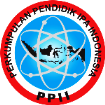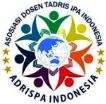A Literature Review of Education for Sustainable Development (ESD) in Science Learning: What, Why, and How
Abstract
The idea of Education for Sustainable Development (ESD) is very developed lately. However, many people do not understand what, why and how ESD is. Therefore, the current article discusses obvious issue as an area for attention and related to ESD, why ESD should be, and how ESD is implemented in education, especially in science education, as well as efforts that can be made to make the implementation of ESD successful. This research is included in the parameters of the content analysis theme. This research-based paper uses literature review from various journals, articles and other text books. ESD is a new approach in the world of education. ESD consists of three dimensions, economic, social and environmental. ESD is incredibly important to apply in science learning for the success of the SDGs. There are several notable elements in the implementation of ESD in science in Indonesia, namely the government (P4TK IPA), Professional Associations such as the Indonesian Science Educators Association, Science Subject Teachers' Conferences, and Communities in the midst of society.
Keywords: education for sustainable development (ESD), sustainable development goals (SDGs)Full Text:
PDFReferences
Bagoly-Simó, P., Hemmer, I., & Reinke, V. (2018). Training ESD Change Agents Through Geography: Designing the Curriculum of A Master’s Program with Emphasis on Education for Sustainable Development (ESD). Journal of Geography in Higher Education, 42(2), 174–191.
Barth, M. (2014). Implementing Sustainability in Higher Education: Learning in an Age of Transformation, January, 1–201.
Bürgener, L., & Barth, M. (2018). Sustainability Competencies in Teacher Education : Making Teacher Education Count in Everyday School Practice. Journal of Cleaner Production, 174, 821–826.
Bürgener, L., Barth, M., & Redman, A. (2019). Becoming a Competent Teacher in Education for Sustainable Development.
Frisk, E., & Larson, K. (2011). Educating for Sustainability: Competencies & Practices for Transformative Action. Journal of Sustainability Education, 2(March), 1–20.
ICSU, I. (2015). Review of Targets for The Sustainable Development Goals : The Science Review of Targets for the Sustainable Development Goals : The Science Perspective (Issue February).
Kioupi, V., & Voulvoulis, N. (2019). Education for Sustainable Development: A Systemic Framework for Connecting the SDGS to Educational Outcomes. Sustainability, 1–18.
Ningsih, S. Y. (2019). Achievement of ESD (Educational for Sustainable Development) through Mathematics Learning. Journal of Physics: Conference Series (Vol. 1157, Issue 4).
Permanasari, A. (2016). STEM Education: Inovasi dalam Pembelajaran Sains. Seminar Nasional Pendidikan Sains, 23–34.
Permanasari, A., Rubini, B., & Nugroho, O. F. (2021). STEM Education in Indonesia: Science Teachers’ and Students’ Perspectives. Journal of Innovation in Educational and Cultural Research, 2(1), 7–16.
Schina, D. (2020). The Integration of Sustainable Development Goals in Educational Robotics: A Teacher Education Experience. Sustainability (Switzerland), 12(23), 1–15.
Suprastowo, P. (2010). Kebijakan dan Implementasi Pendidikan untuk Pembangunan Berkelanjutan (Education for Sustainable Development/ESD). Jurnal Penelitian Kebijakan Pendidikan Vol. 9
Taimur, S., & Sattar, H. (2020). Education for Sustainable Development and Critical Thinking Competency. Springer Nature Switzerland AG, 238–248.
UNESCO. (2003). Conférence générale. December 2002.
UNESCO. (2014). Roadmap for Implementating the Global Action Programme on ESD. Education for Sustainable Development.
UNESCO. (2018). Education for sustainable development and the SDGs: Learning to Act, Learning to Achieve. Policy brief. Advancing ESD Policy. Advancing ESD Policy, 6.
UNESCO. (2020). Guide for the effective dissemination of the asia pacific ESD teacher competency framework, 3–12
United Nations Educational Scientific and Cultural Organization. (2018). Issues and Trends in Education for Sustainable Development. UNESCO Publishing.
Walpole, S., McKenna, M. C., Uribe-Zarain, X., & Lamitina, D. (2010). The Relationships between Coaching and Instruction in the Primary Grades. Elementary School Journal, 111(1), 115–140.
Wals, A. E. J. and L. (2016). Sustainability Citizens Collaborative and Disruptive Social Learning.pdf (B. B. B. & A. N. (Eds. . R. Horne, J. Fien (Ed.)). Earthscan.
Wiek, A., Withycombe, L., & Redman, C. L. (2011). Key Competencies in Sustainability: A Reference Framework for Academic Program Development. Sustainability Science, 6(2), 203–218.
DOI: http://dx.doi.org/10.24014/jnsi.v5i1.15342
Refbacks
- There are currently no refbacks.

Journal of Natural Science and Integration
E-ISSN: 2620-5092 P-ISSN: 2620-4967
Published By:
Department of Science Education, Faculty of Education and Teacher Training,
State Islamic University of Sultan Syarif Kasim Riau, Indonesia
Mailing Address:
Jl. H.R Soebrantas Km. 15 No. 155
Kelurahan Simpang Baru
Kecamatan Tuah Madani, Pekanbaru, Riau, Indonesia
Email: jnsi.tadrisipa@uin-suska.ac.id
Indexed By:
Journal of Natural Science and Integration is licensed under a Creative Commons Attribution 4.0 International License.


_-_Copyy2.png)






.jpg)
.png)
.jpg)
.jpg)




